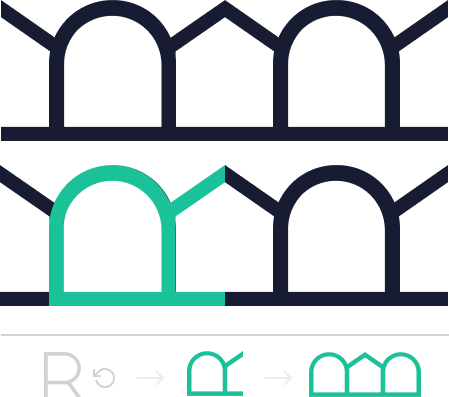Workplan
Working with regional government and municipalities
Case-based research will enable to assess the needs of the stakeholders involved in the planning and monitoring of SECAPs in two selected municipalities and to verify the effectiveness of services provided by the platform in their daily activity.
Developing the online platform
The requirements derived from the case studies will be the starting point for the development of the platform, following an agile methodology which includes an iterative and incremental approach to software development. Qualitative and quantitative methods will be applied to define the indicators to assess the residential building stock.

Goals
The main objective of Retabit is to develop a service platform that integrates data from various sources and fields, allowing actors involved in the rehabilitation of buildings to assess their current state and their potential for renovation from a holistic vision, considering all aspects of sustainable urban regeneration.
Indicators for sustainable renovation
To define indicators to evaluate retrofitting scenarios, according to specific criteria (achieving sustainability objectives, positive energy districts, …) which take into account the multiple dimensions involved in sustainable development programmes: environmental, social and economic.
Integration of data from multiple scales and domains
To integrate data from multiple domains and scales, in order to facilitate a holistic understanding of the building retrofitting.
Multiscale and multidimensional models
To create multiscale, multidimensional models to analyse buildings at the neighbourhood and district level, considering various sustainability dimensions across multiple scales.
Building archetypes
To create building archetypes to characterize buildings in selected urban areas, taking into account their multiple dimensions: environmental (physical characteristics, architectural value), social (time of performance, family structure, income level, education level) and economic (real estate value, ownership/tenancy).
The RETABIT platform
Create an online service platform for:
- Analyse buildings in an urban context and assess their renovation potential considering sustainability indicators
- Create renovation projects and assess the impact of measures using simulation tools
Case studies

